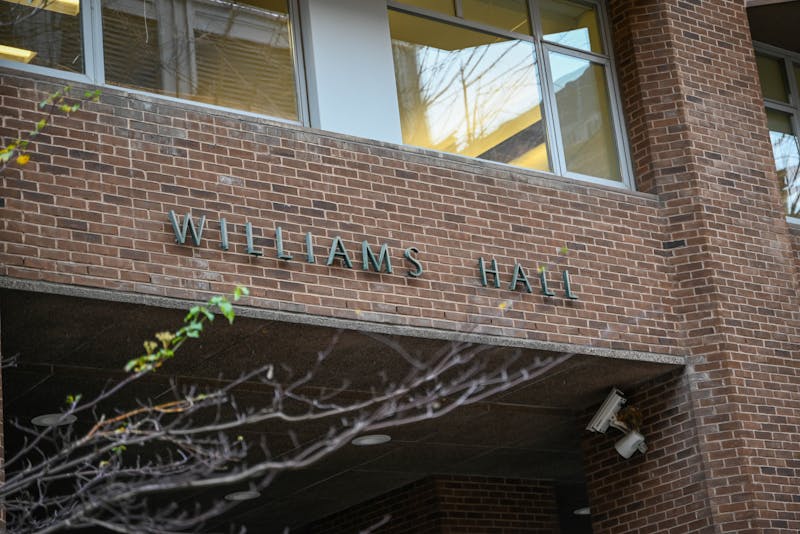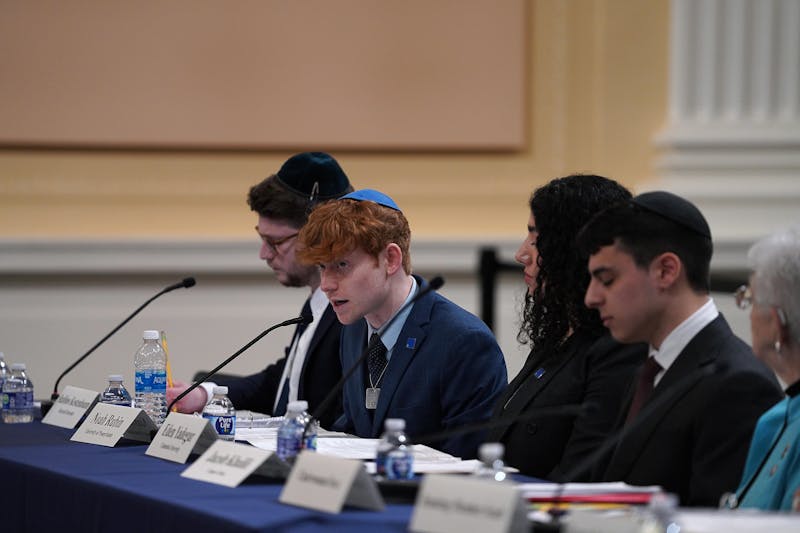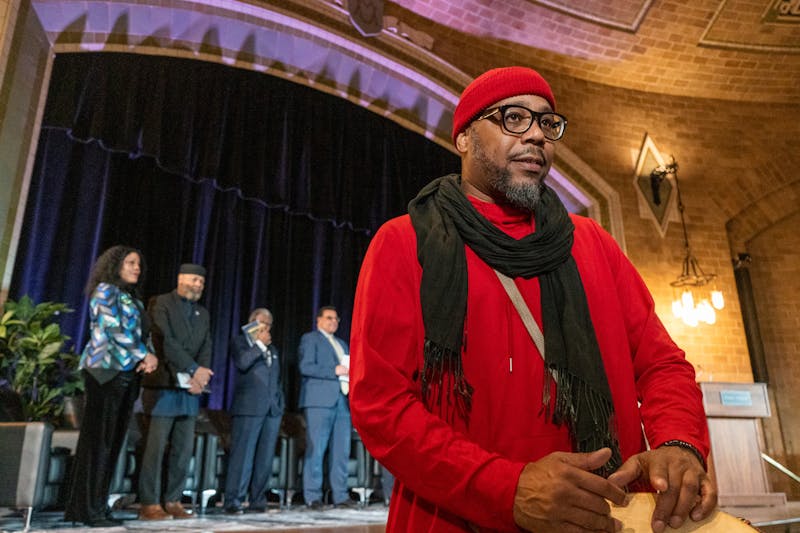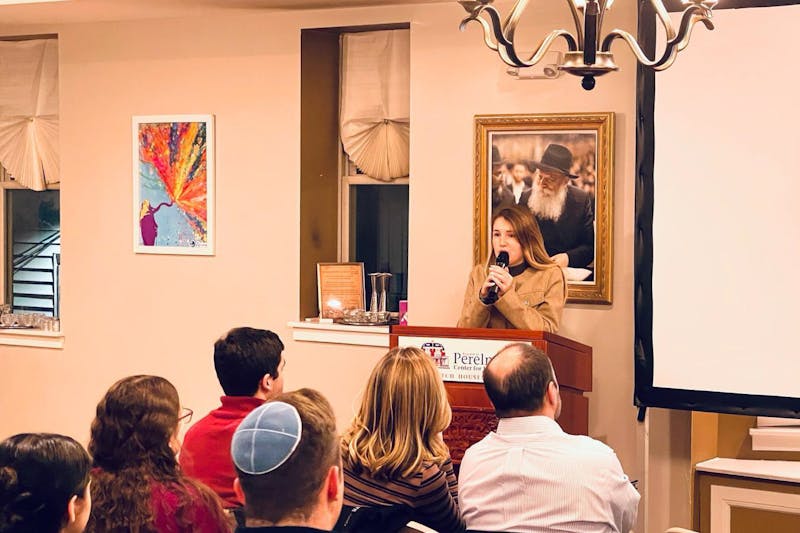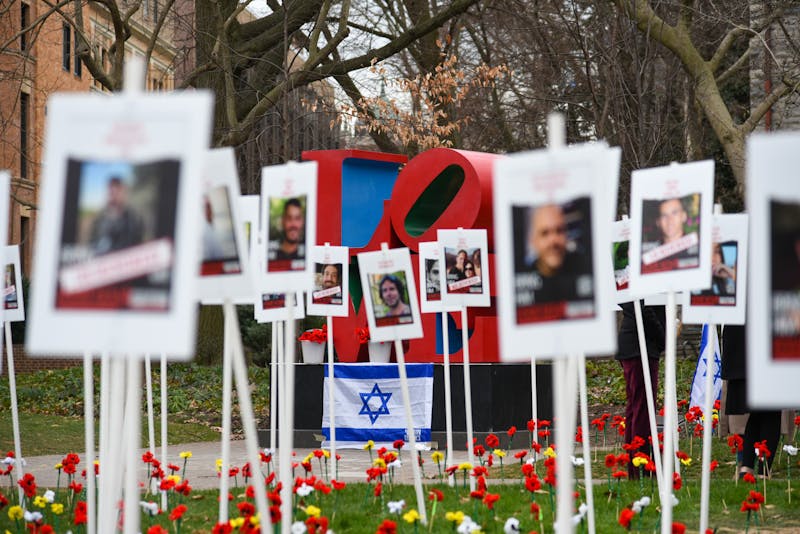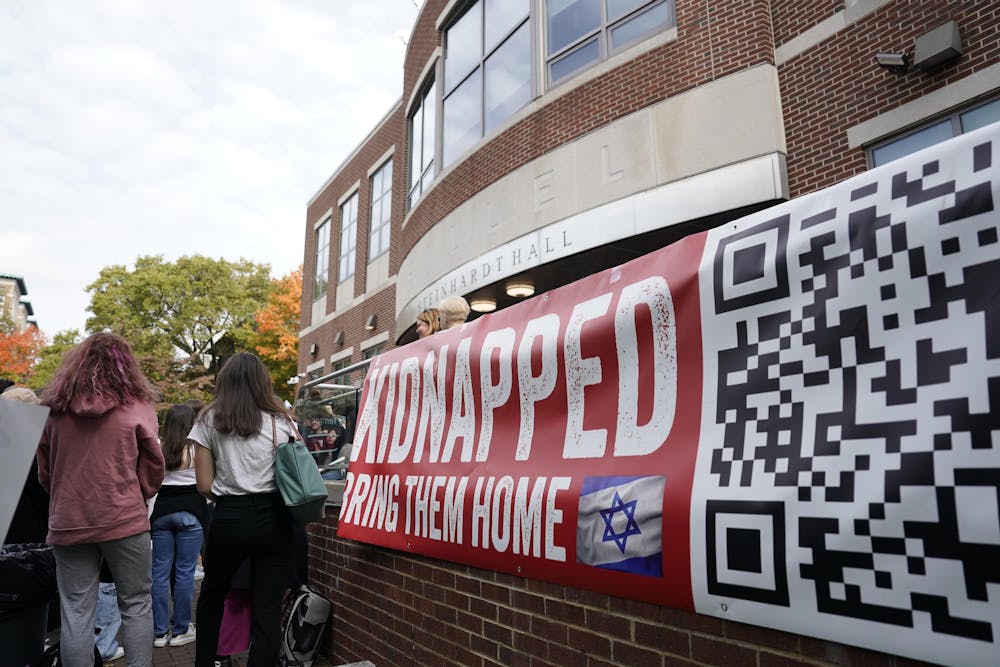
A rally calling for the release of Israeli hostages was held in front of Penn Hillel on Oct. 20, 2023.
Credit: Anna VazhaeparambilWhen I arrived in Israel two months after Oct. 7, I met a different country, a changed people. Something of the native Israeli arrogance, cynicism, and semi-indifference to the surrounding, the self-confidence, and sense of superiority, had disappeared. They were replaced by a craving for closeness, a desire for a hug, a kind of heart-wrenching despair. Moreover, these desires and cravings were expressed with surprising directness. The people whom we met showered us with warmth and affection, for we came from far away to be with them in their time of pain, even for a few days.
We were some thirty professors from the, as of late, infamous University of Pennsylvania. Thirty professors who organized privately, whose disciplines spanned the natural sciences, medicine, law, and humanities. All of us were American Jews, except for one Christian of German origin, and three (including me) who are originally Israeli. What unified us all was the sense that the time had come to declare our love for Israel and offer help not only from a distance but rather with a concrete visit, touching body to body, with one’s tears mixing with those on the cheeks of others. We had no idea to what extent we were wanted: how thrilled and grateful they would be that we came.
At the outset, we were received at the president of Israel’s residence by the president and his wife. He tried to warn us a bit: “You will see a bleeding country,” he said. We did not truly understand this yet, however, and smiled in the group photo. But the weight became heavier as we moved from site to site, from one encounter to another.
A mother of one of the hostages made our souls tremble: thin, almost transparent, she stood erect and described the wounded young man for whose fate she was anxious. The director of Hadassah Medical Center told us of his gratitude to hundreds of dentists who volunteered night after night to identify those who were burnt without leaving a trace of DNA. A commando unit’s doctor who predicted that: “if Israel stopped fighting now, the horror could all repeat itself within a few months to a year.” In Kfar Aza, we bumped into the brother of one of the hostages who was mistakenly killed by friendly fire. He confessed that he was a walking dead. “You think you see a man who is alive, but no.” He roamed the neighborhood where they used to drop by each other’s places for coffee, which is now strewn with the skeletons of burnt cars instead. And under the orange trees lie bright orange fruits, rotting, for there is no one to pick them.
Our hearts were broken to pieces by the story of a father of a family who survived the Be’eri massacre. His leg was amputated, hospitalized in rehab at Sheba Medical Center, he spoke to us: “I could not understand why my roommate at the hospital thanked God. What was he thankful for? And then it dawned on me,” he continued, “I thank [God] for the 32 years I had the privilege to live with my wife before she was murdered, and the 15 years I spent with my son before I buried him with his surfboard as he requested.” In Tel Aviv, the piano played at what is now referred to as “Hostage Square” while its owner is captured by Hamas in Gaza and his mother pleads with us and with anyone who might, perhaps, with some miracle, bring back her son, the pianist. And I did not even mention those of high rank, presidents of universities and academies, former ambassadors, admired hospital directors, prize laureate scholars, and decorated officers who made time to talk to us, to thank us from the bottom of their hearts, and tell us that history will not forget those who stood by Israel’s side when she bled. And although they did not say it, we heard how, without words, their voices echoed the deep loneliness, the burden of everyday existence in an alien universe that rejects this country, a different country already, but still beloved by many.
NILI GOLD is a professor of modern Hebrew literature in the Near Eastern Languages and Civilizations department. Her email is niligold@sas.upenn.edu.
The Daily Pennsylvanian is an independent, student-run newspaper. Please consider making a donation to support the coverage that shapes the University. Your generosity ensures a future of strong journalism at Penn.
Donate







